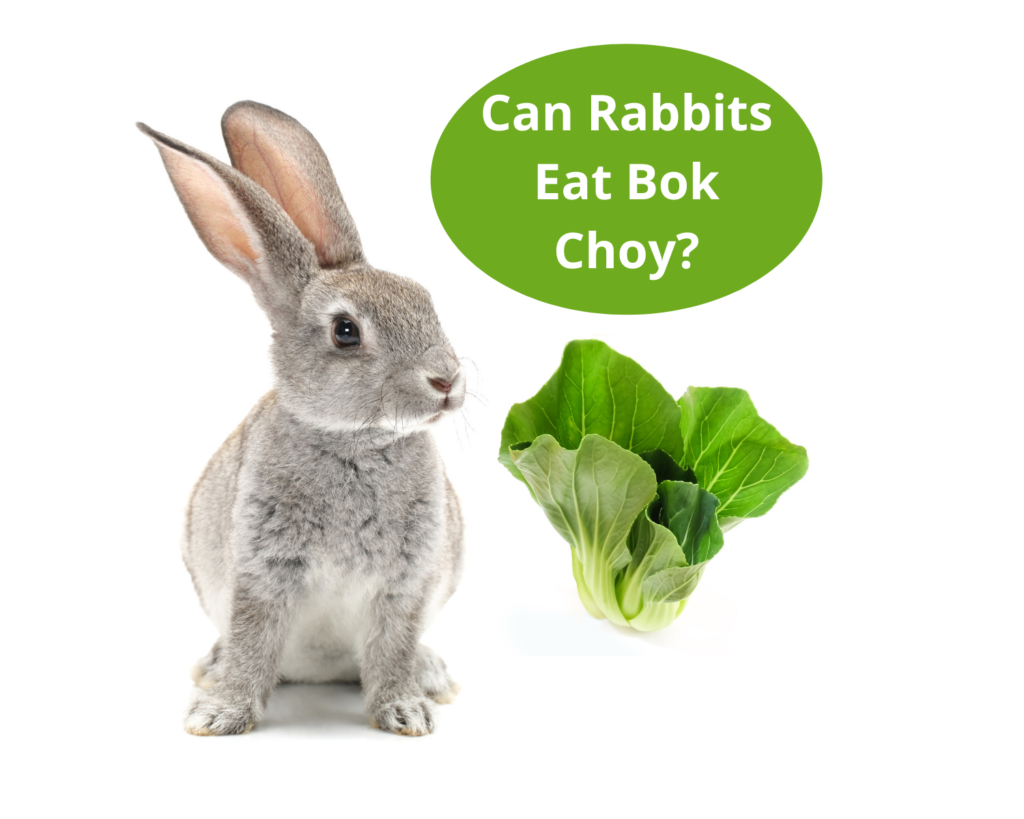Bok choy, also often called bok choi, pak choi, or Pak Choy is a type of Chinese cabbage. It’s very popular in Southeast Asia, China, and certain parts of Europe.
As a leafy green vegetable, bok choy also looks like it might be the kind of veggie you’d feed to a rabbit – but is that safe? Can rabbits eat bok choy?
Read on to find out!
Can Rabbits Eat Bok Choy?
Yes, rabbits can eat bok choy safely. The leafy vegetables are packed with nutrients and, when given in moderation as a treat, are unlikely to pose a hazard to a rabbit. These veggies aren’t toxic and can be given to rabbits raw, cooked with nothing added, or boiled with nothing added.
Nutritional Information Of Bok Choy
According to the US Department of Agriculture’s FoodData Central, one cup of raw shredded bok choy weighs about 70 grams.
The nutritional value of one 70g serving of bok choy is as follows:
- Energy: 9.1 kcal
- Carbohydrates by difference: 1.53 g
- Protein: 1.05 g
- Fat: 0.14 g
- Fatty acids: 0.019 g
- Dietary fiber: 0.7 g
- Sugars: 0.826 g
- Calcium: 73.5 mg
- Iron: 0.56 mg
- Magnesium: 13.3 mg
- Phosphorus: 25.9 mg
- Potassium: 176 mg
- Copper: 0.015 mg
- Magnesium: 0.111 mg
- Selenium: 0.35 µg
- Sodium: 45.5 mg
- Zinc: 0.133 mg
- Vitamin A: 156 µg
- Vitamin B-6: 0.136 mg
- Vitamin C: 31.5 mg
- Vitamin E: 0.063 mg
- Vitamin K: 31.8 µg
These values are slightly different when that amount of raw bok choy is cooked or boiled without additives. However, for the most part, the values are close enough that they can be considered the same unless your rabbit has extremely specific dietary needs.
Potential Hazards To Watch For When Feeding Bok Choy
When fed in excess, bok choy can cause gastrointestinal issues. Your rabbit may become gassy, develop stomach discomfort, or experience a change in stool consistency.
This can also cause a rabbit to refuse to eat until the stomach upset subsides.
If you notice any of these hazards occurring after feeding a rabbit bok choy, stop feeding them the vegetable immediately. Each rabbit is different, and the vegetable might simply not agree with your rabbit!
Remember, also, that it is best to contact your vet if your rabbit has a negative reaction to bok choy.
6 Benefits To Feeding Your Rabbit Bok Choy
1. It Has High Levels of Antioxidants
Bok choy is filled with different antioxidants, which protect the cells from damage and keep your rabbits safe from various diseases, infections, and more. The high amount of vitamin C is just one of those great antioxidants.
2. It Has Low Calories
The low-calorie nature of bok choy makes it ideal for rabbits. They won’t end up overeating, which would put them at risk of various health problems associated with excess weight.
3. It Has Moderate Calcium Levels
The main diet of most healthy rabbits consists of a lot of calcium. Bok choy, while it does offer medium calcium amounts, doesn’t provide too much excess.
This means it’s safe for rabbits and won’t lead to the formation of bladder stones.
4. It Has Good Dietary Fiber Content
Bok choy has a decent amount of dietary fiber. This component is great for a rabbit’s digestive system, preventing gastrointestinal issues.
5. It’s Good For Bones
Bok choy contains minerals like vitamin K, magnesium, zinc, and phosphorus. These components are important for most living creatures, as they help to strengthen the skeletal system.
Eating bok choy can prevent osteoporosis and other issues from bothering a rabbit as it ages.
6. It’s Good For The Heart
With its host of minerals and vitamins like B6, bok choy could have benefits for the heart. Rabbits who eat these veggies may enjoy a strengthened cardiovascular system and a reduced risk of heart disease.
How Much Bok Choy Can A Rabbit Safely Have?
Rabbits’ diets are very fragile and require a lot of attention. Only 10% of their daily food consumption should consist of leafy greens.
This means that bok choy can only be fed to them in small amounts, or even less if you feed your rabbits other leafy greens too.
It’s best to mix bok choy with the other leafy vegetables that you feed your rabbit. One cup of mixed vegetables is typically recommended for a 2-pound rabbit, so adjust accordingly based on the other things you feed it.
Bok choy can be given to a rabbit once or twice a week, but not in excess. This should also only be fed to adult rabbits – babies can’t yet handle these types of vegetables!
Best Ways To Feed A Rabbit Bok Choy
It is okay to boil or cook the bok choy first. However, do note that you shouldn’t add anything to the bok choy if you choose to cook it – no salt, no oil, no flavors!
When you first introduce bok choy to your rabbit’s diet, start with a very small amount first and monitor their reaction.
If your rabbit seems healthy and as normal after consuming bok choy, you can slowly increase the amount each time until you reach the maximum desired amount.
Rabbits are likely to enjoy the leafy parts of bok choy the most. If you choose to feed them the stems, make sure to give very little, as the stems can be tougher for a rabbit to digest.
Conclusion
Bok choy is safe for rabbits to eat in small amounts, especially when mixed in with other routine vegetables. Keep an eye on your rabbit after the first time you feed them bok choy to see if it’s a good fit for it!

